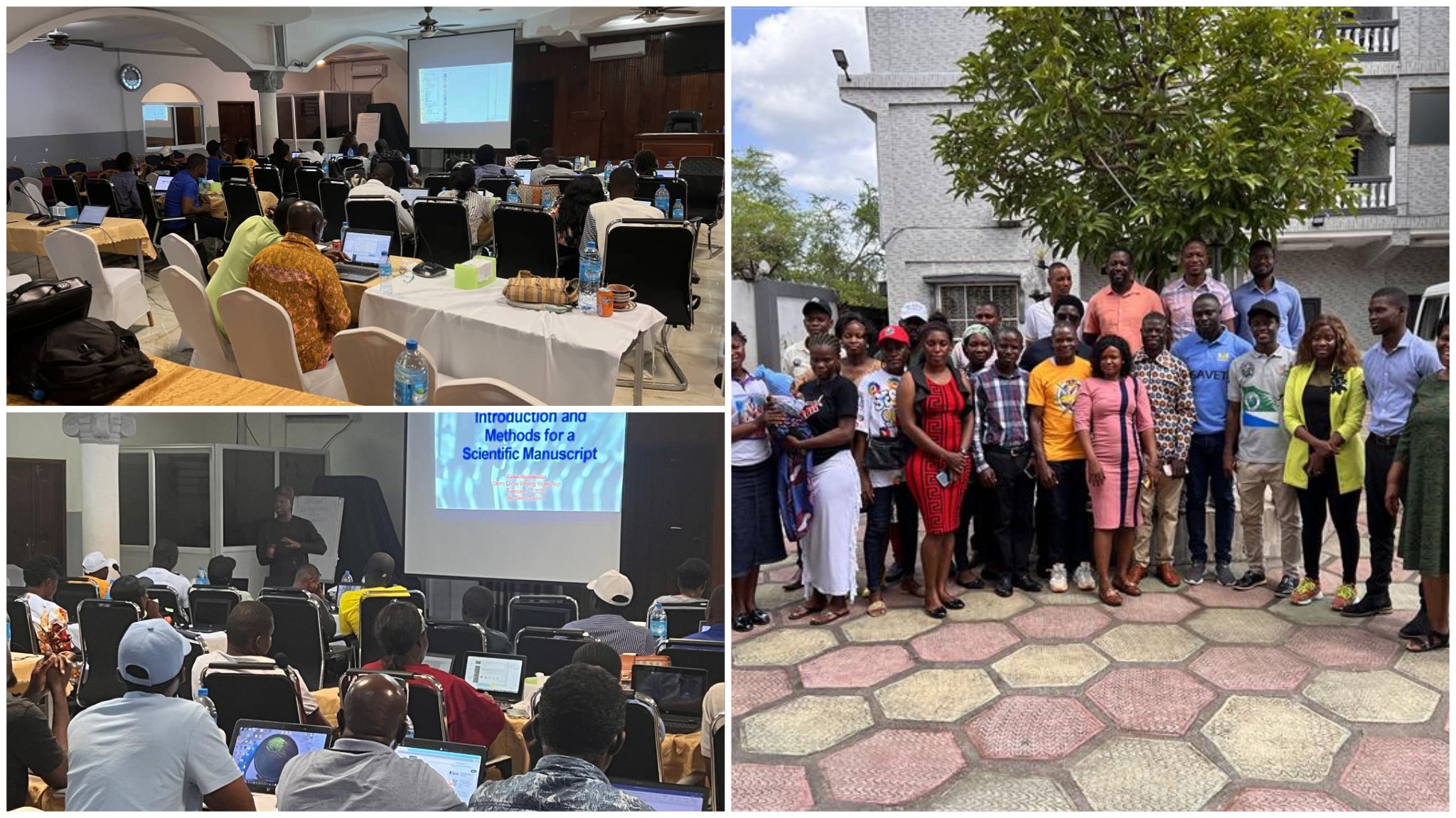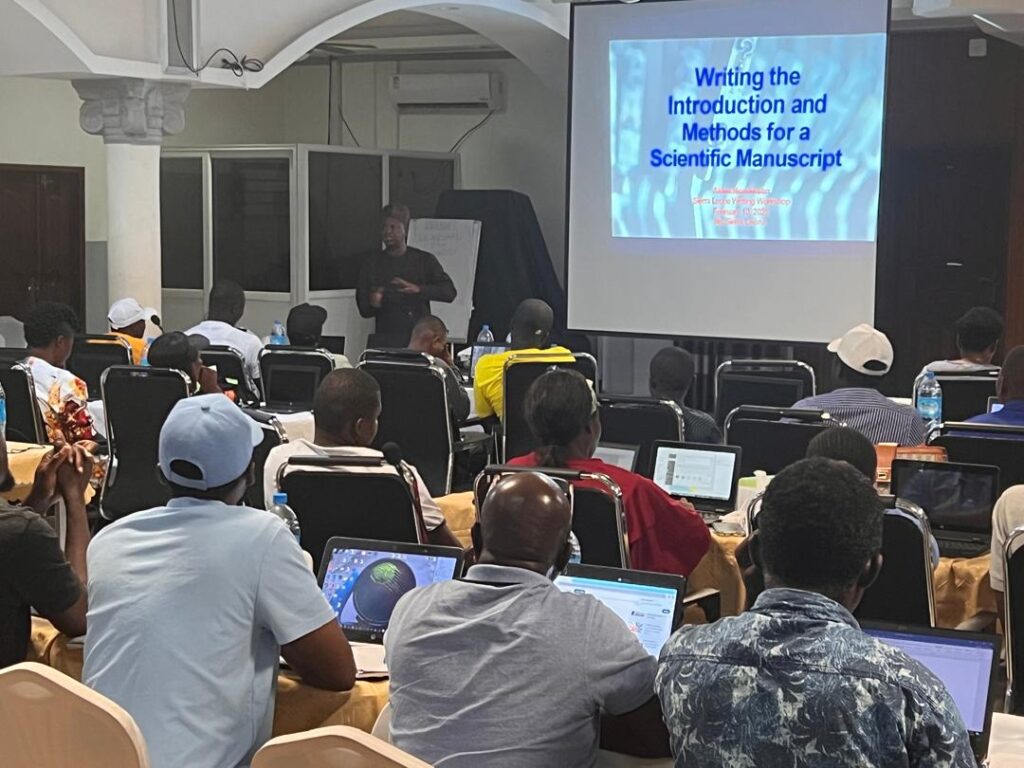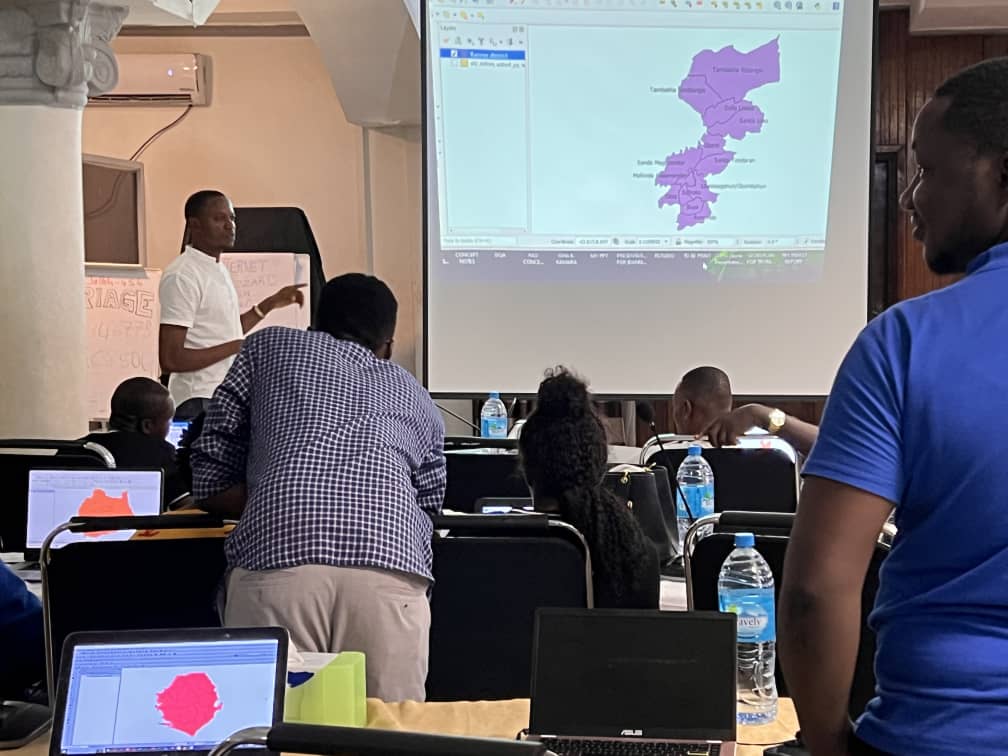
The Food and Agriculture Organization of the United Nations (FAO), through its Emergency Center for Transboundary Animal Diseases (ECTAD) has ramped up efforts to improve veterinary and public health services by equipping the Frontline In-Service Applied Veterinary Epidemiology (ISAVET) graduates and trainees with skills in Geographic Information Systems (GIS) and Scientific Report Writing.
This initiative, funded by the United States Agency for International Development (USAID) through the Global Health Security Program (GHSP), is designed to strengthen disease surveillance and reduce the burden of animal diseases across the country.
With the increasing importance of risk mapping, spatial analysis for value chain studies and data visualization of animal disease outbreaks and related risk factors, these newly acquired skills will enhance the capacity of Sierra Leone’s veterinary services.

GIS-based risk mapping enables more precise insights into disease patterns and accelerates responses to potential outbreaks Bridging Capacity Gaps in Sierra Leone’s Veterinary Sector.
The Frontline In- Service Applied Veterinary Epidemiology Training (ISAVET) for field veterinarians and paraprofessionals is FAO’s flagship programme aimed at improving skills of animal health personnel in disease detection, reporting and response.
Launched in Sierra Leone in 2022, the programme celebrated the graduation of its first cohort of 13 trainees in March 2023, and a second cohort of 21 trainees began their journey in June 2024, with completion slated for November 15, 2024.

Enhancing Skills with Practical Tools and Resources* To improve the quality and presentation of reports produced by the ISAVET Graduates and Trainees in Sierra Leone and to enable publication of field findings, FAO supported a training of twenty five ISAVET graduates and trainees in GIS back-to-back with Scientific Report Writing from 21 to 25 October 2024 in Bo.
The trainings were facilitated by personnel from Ministry of Agriculture and Food Security, University of Makeni, University of Sierra Leone and FAO.In addition, the trainees received comprehensive learning materials, including manuals and sample datasets tailored to Sierra Leone’s specific context.
These resources are expected to help graduates in submitting regular, data-enriched reports to the Epidemiology Unit, contributing to a more robust national surveillance framework.
*Voices of Support from Sierra Leone’s Veterinary Leadership* Opening the training session, the Deputy Director of Livestock and Veterinary Services, Salamu Saidu, expressed his appreciation for FAO’s continued support, emphasizing the training’s relevance.

He urged participants to focus on mastering QGIS to improve their weekly reporting, noting that their enhanced skills would ultimately benefit national animal health policies.
Dr. Noelina Nantima, Animal Health Advisor on behalf of the leadership of FAO, expressed her gratitude to Ministry of Agriculture and Food Security (MAFS) and all participants for their participation.
She highlighted that the training aims to enhance the skills of ISAVET graduates and trainees in QGIS and scientific writing, emphasizing the importance of producing high-quality work for publication.
She informed the participants that ISAVET Cohort 2 will end November 15, 2024.*Previous and ongoing efforts by Government of Sierra Leone and partners to improve workforce development
Since 2016, FAO ECTAD in Sierra Leone has supported the Livestock and Veterinary Services in the Ministry of Agriculture and Food Security as well as the Wildlife Unit in the Ministry of Environment and Climate Change to strengthen human resource capacities to meet diseases surveillance requirements.
The ISAVET training coupled with skills in Geographical Information System and Scientific Report Writing will greatly enhance the capacity of the personnel to produce good reports with spatial distribution and risk factor patterns of diseases to enable policy makers to make evidence-based decisions.
By strengthening Sierra Leone’s veterinary workforce, FAO ECTAD is reinforcing the country’s resilience to disease threats, positioning Sierra Leone’s veterinary services to meet global disease surveillance and response standards.



